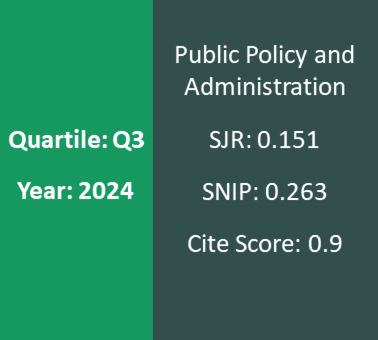Regulation of Alcohol Sale Hours: Experiences of First and Second Republic of Lithuania
DOI:
https://doi.org/10.5755/j01.ppaa.14.1.11408Keywords:
alcohol, sale, on premise, off premise.Abstract
The goal of this article is to compare the regulation of the hours of retail alcohol sales in the First (1918–1940) and Second Republic of Lithuania (1990-2012). The research is based on document analysis. The regulation of the hours of alcohol sale in the First Republic of Lithuania is divided chronologically into three stages. Starting from 1922, sales were prohibited on certain state and religious (6) holidays and allowed on Sundays, but only after the church services, i.e. after 1 p.m. From 1925 until 1934, the most severe restrictions were in effect: alcohol sales were completely prohibited on Sundays and on 13 religious and 2 state holidays, and the hours of alcohol sales were shortened on Saturdays and on other religious holidays. In 1934, alcohol sales became strongly liberalized: the number of the religious holidays prohibiting them dropped significantly (only Christmas and Easter remained), Sunday sales were liberalized (allowed after the church services) and the sale hours were slightly prolonged. However, alcohol sales remained prohibited on days of the Seimas elections and mobilization throughout the entire period of the First Republic of Lithuania. Restrictions varied in alcohol shops and various public catering establishments (restaurants, pubs, cafés) where alcohol is sold on premise. In the latter, the sale hours were slightly longer than in shops. Furthermore, regulation of sale hours differed in regional centers (larger cities) and the smaller towns. The regulation of alcohol sales is clearly linked to the ruling parties of the time. The strongest restrictions on alcohol sale hours were imposed by the second Seimas, during the ruling of the Christian Democrats, and were liberalized during the period of ruling by Antanas Smetona. The sale hours in the Second Republic of Lithuania, twenty years after the passing of the Law on Alcohol Control, are very liberal compared to that of the First republic. Over the period since 2006, sales were prohibited only on the 1st of September (on premise sales have been allowed at public catering establishments since 2008). Even though the Main Law on Alcohol Control was passed at the time of the sixth Seimas, whose majority was composed of the Democratic Labour Party of Lithuania, the hours of alcohol sales were quite long, because both on premise and off-premise sales were possible after double payment. The eighth Seimas, where the Social-Democratic Coalition was the majority, cancelled all restrictions on sale hours. Only the tenth Seimas, which had the majority of the Homeland Union – Lithuanian Christian Democrats, prohibited off-premise alcohol sales from 10 p.m. until 8 a.m. in 2012, but it was still possible to buy alcohol at night at public catering establishments that had night sale license and consume it on premise or buy it in an open container.
It was determined that the regulation of alcohol sale hours was more varied and much more restricted during the period of the First Republic of Lithuania than that of the Second. The liberal regulation of alcohol sale hours in the First Republic in 1934 was much stricter than the restrictions imposed on alcohol sale hours in 2012 that are still in effect today. In order to ensure public safety and prevent binge drinking we recommend restricting alcohol sales regulation in contemporary Lithuania.





